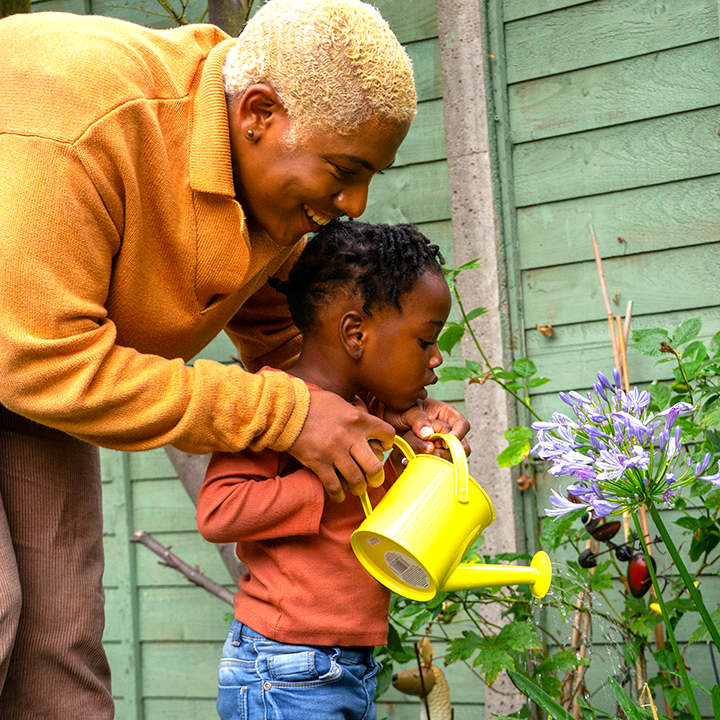Supporting family for neurodivergent children and young people
- SEND
- Parents and Carers
- Behaviour, emotions and mental health
- Neurodiversity

We cannot presume how you will feel. Parents and carers of neurodivergent children and young people can feel a wide range of feelings and emotions. Your feelings and emotions are valid. It is important to acknowledge your feelings, whether positive or negative.
Neurodivergent children and young people require a little more attention and help. You will too!
Explore the topics on this page:
Siblings
It can be hard for some children and young people to understand their neurodivergent sibling. Their behaviours may be strange to them or they may not respond in the way that they expect.
It's important to give your child or young person information about autism. You can give them a basic overview and then provide simple but specific information. Make sure to give it to them in a way that they will absorb the information. Some children will prefer to:
- read a book or leaflet
- watch a video
- listen to a podcast
- talk face-to-face with you or another person
It may also be helpful to explain to your child or young person that other people may not understand neurodiversity. This means that other people may act and react differently towards their neurodivergent sibling.

Having a neurodivergent sibling can be hard for some children and young people. There can be lots of mixed feelings and emotions like:
- not understanding why their neurodivergent sibling behaves a certain way
- feeling rejected when their neurodivergent sibling doesn't want to play with or talk to them
- feeling that they are not getting as much attention as their neurodivergent sibling
- feeling left out or overlooked
Making time for your child or young person is really important. Try to have some 1-to-1 time with your child or young person. Just 10 minutes can make a big difference.
You can also think about activities that can be done as a family and what can be done with you and your child or young person.
You may be spending more time helping their neurodivergent sibling. Let your child or young person know that you love them just as much as their neurodivergent sibling.
You may think this is obvious but it can be really important for a child or young person to receive reassurance from you.
Talk to your child or young persons about their feelings. They may be feeling a range of different emotions like confusion, anger or sadness.
You can validate their feelings by:
- showing you are listening
- reassuring them that their feelings are okay
- let them know they can talk to you
You can also give your child or young person opportunities to talk to someone else that they trust and feel comfortable with. Your child or young person may not feel comfortable talking to you about their feelings. This can be because they don't want to worry or upset you.
Read more about how to validate someone else's feeling on the YoungMinds.
Giving your child or young person space is really important, especially for older children and young people. They are likely to want some uninterrupted privacy to do homework and have friends visit.
Make sure your child or young person has a safe space to keep important or personal items. This is particular important if their neurodivergent sibling breaks things.
Remember to praise your child or young person's positive behaviour. This can be completing homework, making something, sharing with their sibling or getting dressed without help.
This is a way to give your child or young person attention. It can help stop them seeking your attention in other, less constructive, ways.
Taking care of yourself
We know it is really easy to get distracted by daily life, you can forget to take time for yourself. For lots of parents, self-care is the first thing to stop when they feel overwhelmed or too busy.
Growing a family is like growing a garden
As parents, we are like a watering can. We water our family like plants throughout the day. We give them the water and nutrients they need to grow.

If you don't top up the water in the watering can, the water will run out. It will dry up and make it harder to water your family. You also won't be able to look after yourself!
Taking care of you is like refilling your watering can. It doesn't need to be a big gesture or something that takes a lot of time. It can be 3 minutes of a tiny micro-habit like listening to your favourite song or giving yourself a few moments in the shower, once you've finished showering.
Simple ideas to help your family life
- Use reminders like calendars, phones, alarms, timers and clocks.
- Use a whiteboard or blackboard to show information about what is happening during the week.
- Use apps to make timelines, visual schedules and other helpful visuals.
- Find venues with quiet hours and SEND access times
- Create a sensory bag for your child or young person's needs. You can take this when you go out and about. This can help make outings with your child or young person a little easier.
- Sign up and join local groups, forums and national support websites for information and support.
- Look at your local offer. Local offers will explain what support is available in your area which can be helpful in schools or educational settings.
- Don't take too much on.
- Ask for or accept help.
Financial support for families
Checking what financial support is available can be daunting. We have gathered some useful and local resources for you to use to find out more.
Last reviewed: 27 November, 2024









